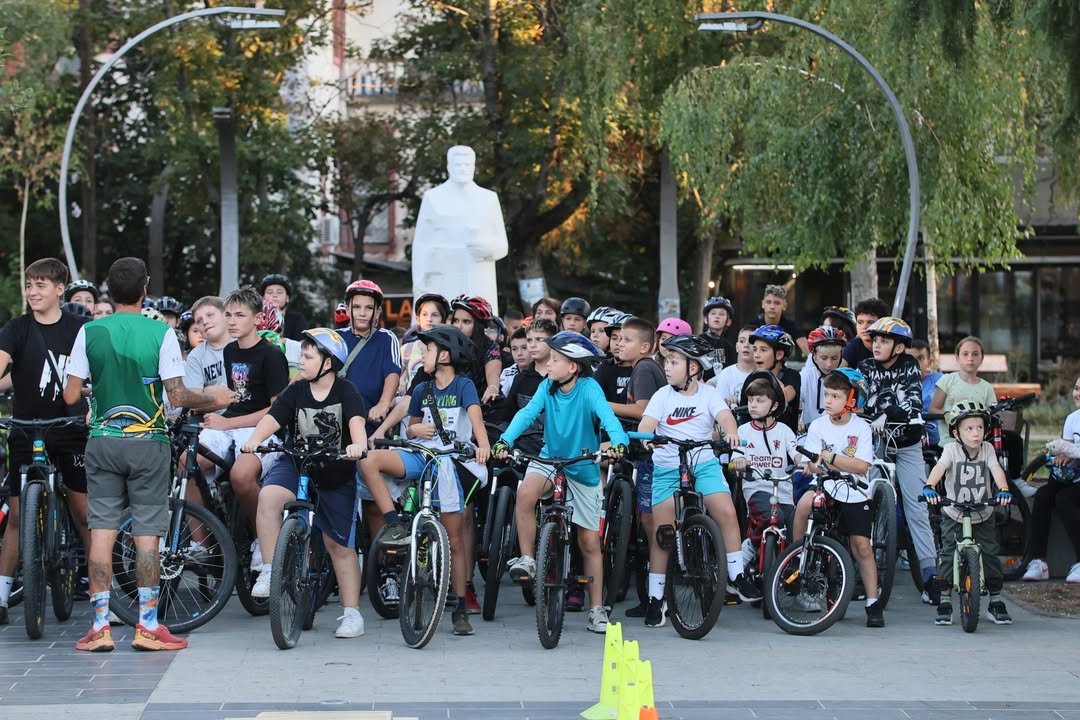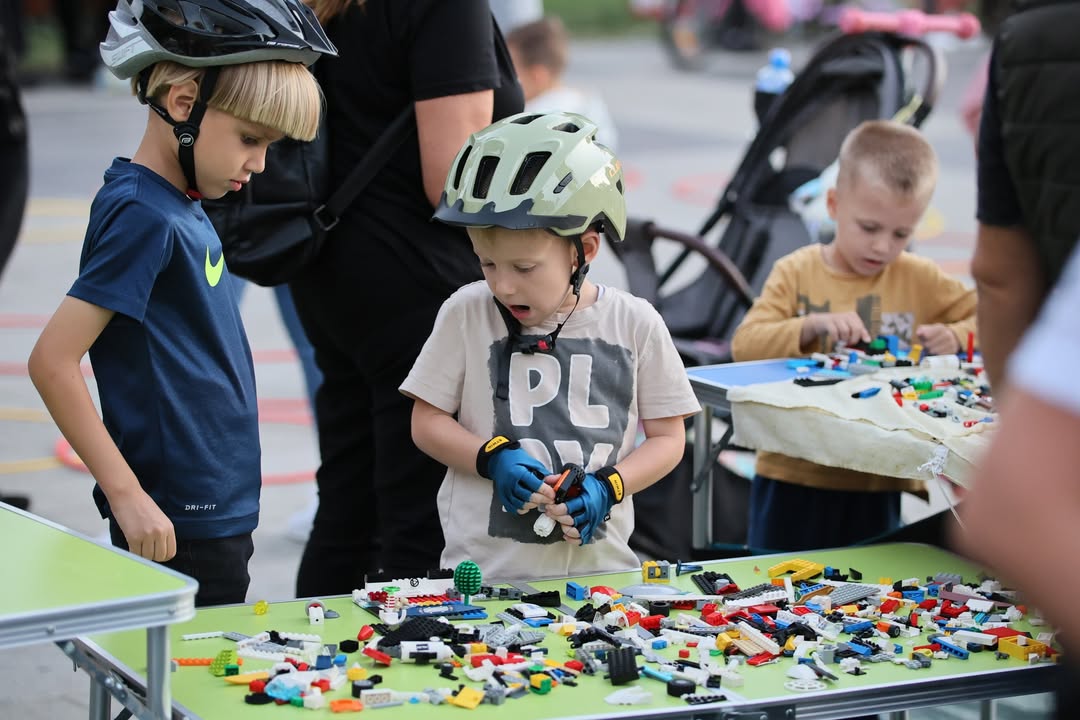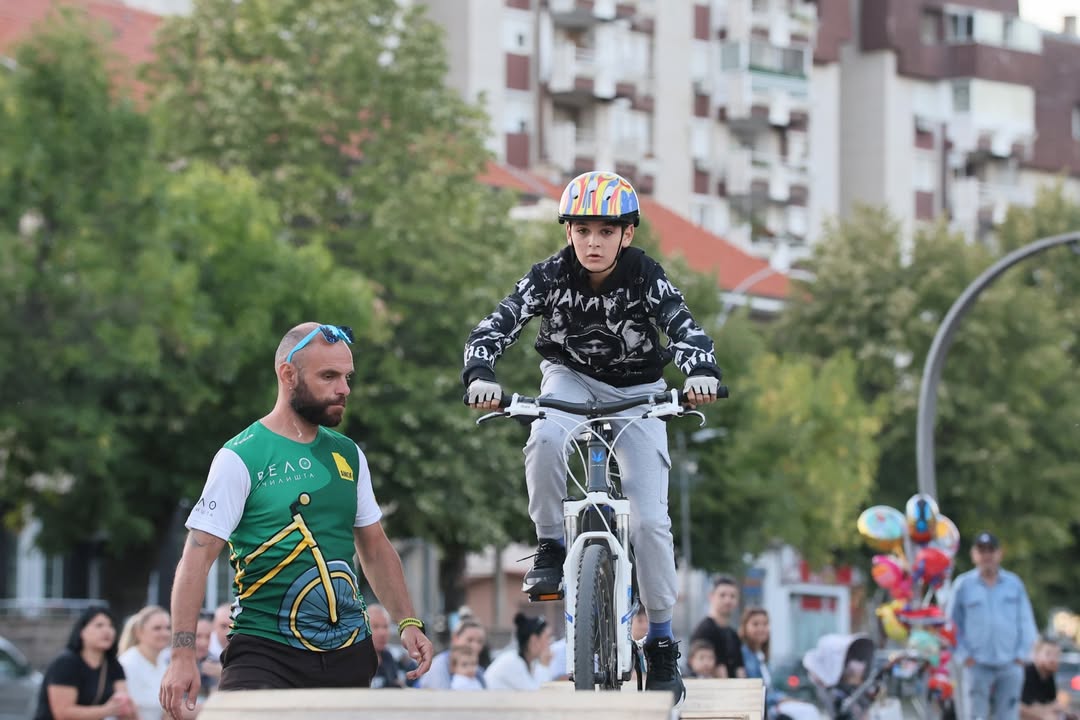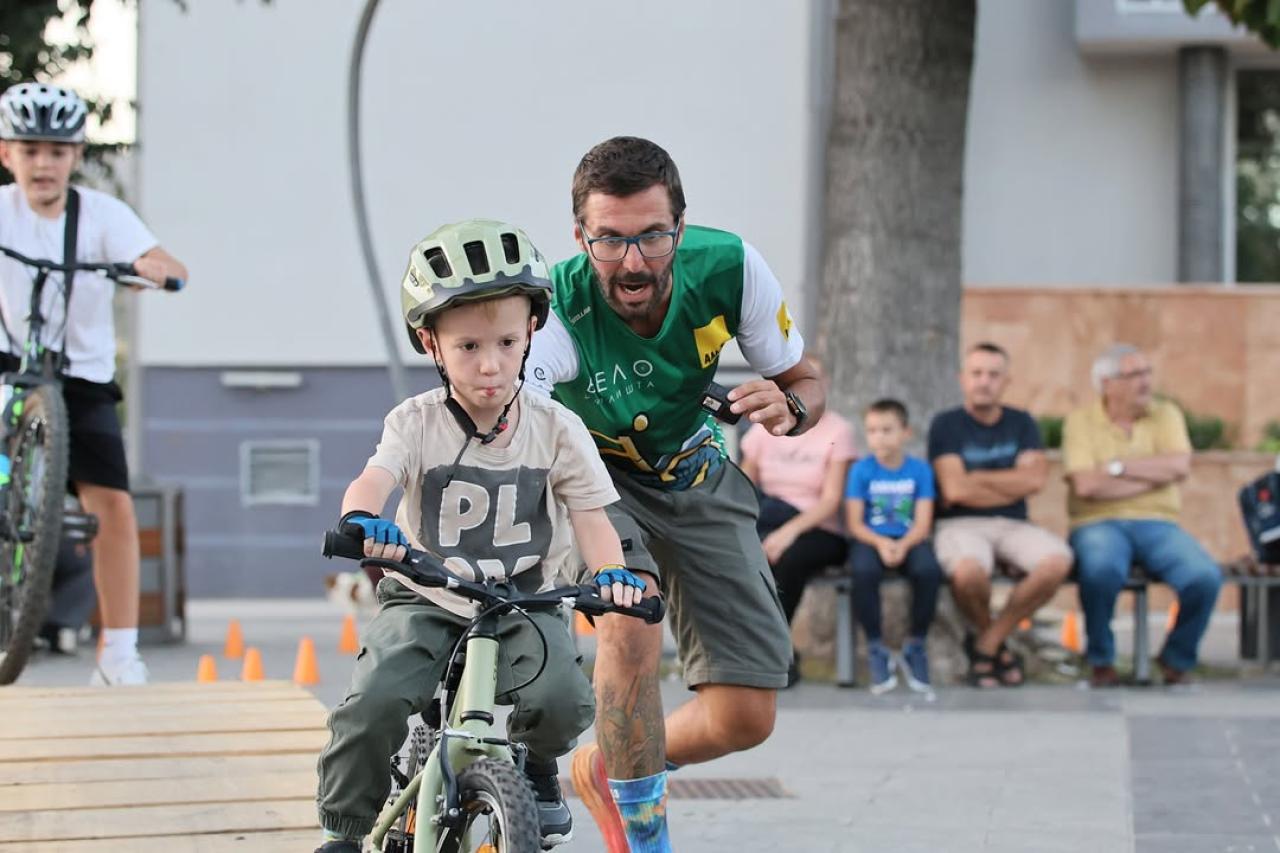The Municipality of Kocani, committed to promoting sustainable mobility and active lifestyles, has successfully transformed the Velo Rodeo into a signature local event that brings together education, fun, and community spirit.
The first Velo Rodeo was held in 2023 as part of the Beyond the Urban URBACT project and European Mobility Week. Delivered by Velo Schools, the event introduced an engaging new format: children and youth learned about cycling safety and traffic awareness through playful obstacle courses and games. The pilot exceeded expectations —more than 150 young riders participated, supported by schools, teachers, and families. The message was clear: mobility education can be fun, inclusive, and effective.
What exactly is the Velo Rodeo?
The Velo Rodeo is a dynamic cycling education event that transforms a public space — usually a schoolyard or open square — into a safe learning playground for young cyclists. It combines physical activity with practical safety training through:
- Cycling skill zones for balance, braking, and turning.
- Simulated traffic environments with real signs, crossings, and volunteer “officers.”
- Educational checkpoints about helmet safety, reflective equipment, and respect for pedestrians.
- Creative and family activities including bike decorating, mini quizzes, and environmental games.
It is designed for children aged 6–14, focusing on inclusion, teamwork, and confidence-building. The event turns safety lessons into joyful experiences, helping children and parents alike understand the value of sustainable and responsible mobility.
Growing impact: from 2023 to 2025
After the successful 2023 pilot, Kocani organized its second edition in 2024, this time with the support of Europe House and several local partners. The format expanded — adding new obstacle zones, eco-education booths, and school competitions like “Design Your Dream Bike Lane.” Participation grew, enthusiasm multiplied, and Velo Rodeo became officially integrated into the municipal calendar of events for European Mobility Week.
Building on this momentum, the 2025 edition took place again in September 2025, once more as part of European Mobility Week.

This time, the Velo Rodeo attracted more than 200 participants, including children from all local schools, parents, and teachers. The event opened with a performance by a children’s band, creating a lively, festive atmosphere. Educational activities were expanded to include:
- Interactive road safety demonstrations led by local police.
- Workshops on bicycle maintenance and proper helmet fitting.
- Environmental games highlighting the benefits of cycling for clean air and climate protection.
Local NGOs and volunteers played an essential role in organizing the stations and mentoring the young participants. The event once again proved that learning about mobility can be both meaningful and entertaining — a combination that captures hearts and changes habits.
Why it matters: learning, awareness, and culture change
The Velo Rodeo is more than an event —it is a practical example of how education and community participation can drive sustainable change. By engaging children early, Kocani helps create a new generation of safe and confident cyclists, while also raising awareness among parents and residents about the importance of calm, shared streets.
The initiative supports the goals of the Beyond the Urban URBACT project, which promotes inclusive and connected mobility between urban and rural areas.
Through Velo Rodeo, Kocani encourages:
- Active travel habits from an early age.
- Public demand for safer cycling and walking infrastructure.
- Better cooperation between schools, NGOs, and municipal services.
- Visibility for local mobility plans and the Integrated Action Plan (IAP) in everyday life.

These outcomes demonstrate how soft, community-based measures can effectively complement infrastructure investments and policy strategies.
Results and lessons learned
Across its three editions (2023–2025), Velo Rodeo has delivered tangible results:
- Over 500 children have directly participated, supported by dozens of teachers and volunteers.
- Surveys show a notable increase in cycling confidence and traffic knowledge among young participants.
- Schools have reported that more pupils now cycle or walk to school regularly, particularly during spring and early autumn.
- The event consistently attracts large audiences — often over 500 spectators, reinforcing social inclusion and civic pride.
Key lessons learned include:
- Early coordination with schools is crucial for attendance and engagement.
- Volunteers and local police enhance both safety and learning outcomes.
- Combining music, games, and education makes the event more memorable and accessible.
- Including family participation strengthens the message and encourages shared responsibility on the road.
A local initiative with european relevance
The Velo Rodeo demonstrates how small-scale, low-cost actions can produce lasting cultural and behavioural change. Its success has drawn attention from other municipalities and URBACT partners interested in replicating the model as a “transferable good practice” for cycling education.
The event directly contributes to European Mobility Week goals and aligns with the EU’s Green Deal and Urban Mobility Framework by promoting low-emission, healthy transport choices.
Kocani’s example shows that transforming mobility starts with engaging the youngest citizens —those who will shape the city’s future travel culture.
A lasting legacy
By embedding the Velo Rodeo into its annual programme and connecting it with long-term mobility planning, Kocani is turning a playful idea into a pillar of its sustainable mobility vision. The event nurtures environmental awareness, strengthens community ties, and brings municipal strategies to life through direct public participation.
As Kocani continues to expand safe cycling routes and implement its Integrated Action Plan, the Velo Rodeo stands as a vivid reminder that meaningful change begins with education, inclusion, and joy. With the continued support of schools, NGOs, and European partners, this initiative is set to remain a flagship example of how small cities can build big change—one pedal stroke at a time.
This article was written by Dijana Apostolova Zlatkova, Assistant Head of the Planning and Development Department at Kokani.



